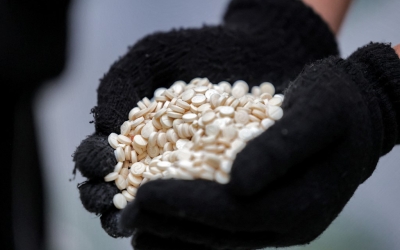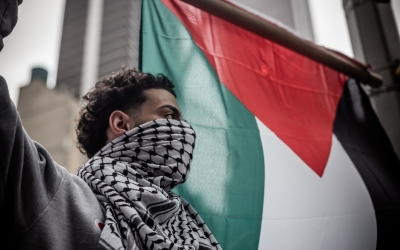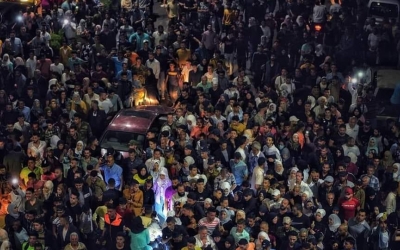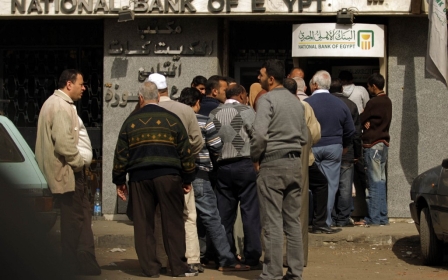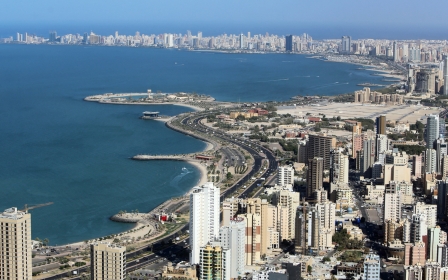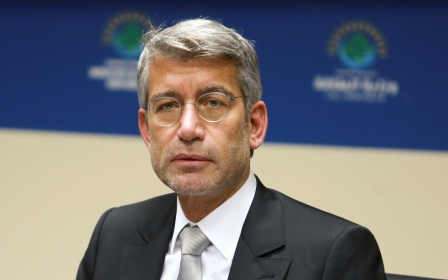Arabic press review: Jordan accuses Syrian forces of aiding drug smugglers
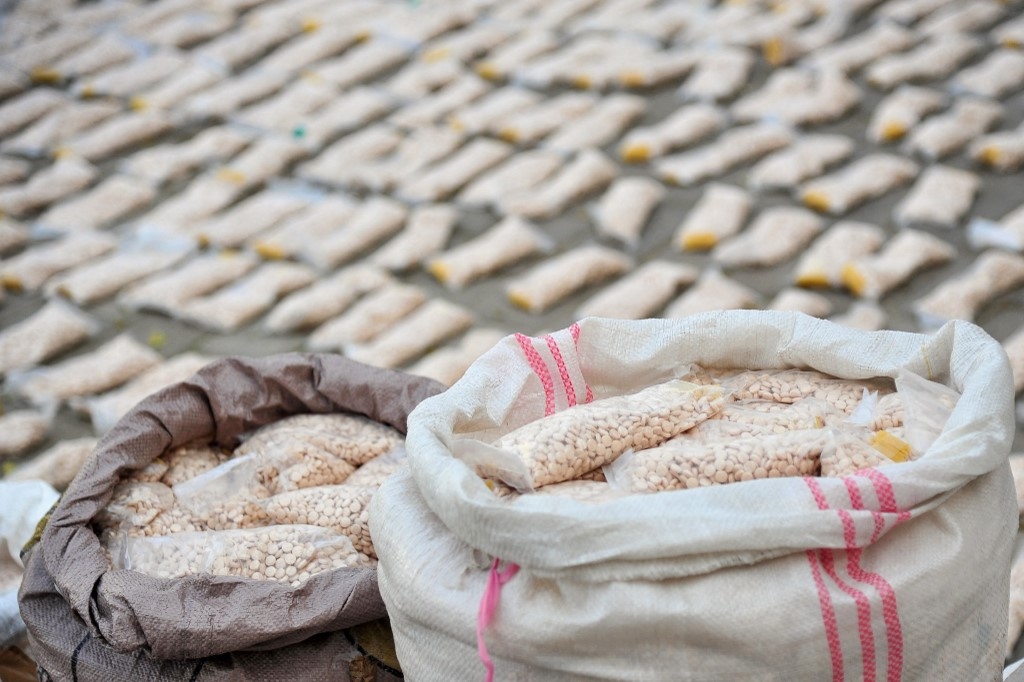
Jordan accuses Syrian forces of supporting drug smugglers
A Jordanian security official accused groups from the army of the Syrian government of collaborating with drug smugglers and some organised gangs that try to cross from the Syrian territories to Jordan, according to the local Al-Ghad newspaper.
"Undisciplined forces from the Syrian army are cooperating with drug smugglers and their gangs, which have become organised gangs," said Brigadier General Ahmed Hashem Khalifat, the director of the Border Security Directorate in the Jordanian army.
He claimed that the drug smugglers, and organised gangs “are supported by these forces and their security services, besides the militias of Hezbollah and Iran deployed in southern Syria,” according to Al-Ghad.
Khalifat stated that from the beginning of the year until the beginning of this month, the quantities of drugs seized by border guards increased to over 19 million Captagon pills, about half a million cannabis chunks, and five bags of drug pills. The quantities seized across the same borderline last year amounted to nearly 14 million Captagon pills, and 15,000 cannabis chunks.
"We are planning to use armed aircrafts with no pilot to deter drug smuggling and armed infiltration on the northern and eastern borders, besides using drones to monitor the borderline in the northern region," Khalifat said.
Khalifat revealed a current development of radars whose task is to control the “drones” loaded with drugs launched by smugglers from the Syrian side towards Jordan.
PA calls for sanctions on Israel
Palestinian Prime Minister Mohammad Shtayyeh called on the global community to boycott Israel and impose sanctions against it, and not allow it to escape punishment, according to the official Palestinian news agency Wafa.
Shtayyeh said that "impunity, which is a feeling that was formed during the 74 years of the Palestinian Nakba, is considered the great motivation for the occupying state to commit crimes of murder, settlement, and displacement".
"It is time for this dual policy to stop and to protect the Palestinian people from the brutality and racism of the occupation," he added.
Shtayyeh pointed to the commemoration of the Palestinian Nakba, "while the Israeli attacks witnessed an accelerated pace of killings without the slightest regard for international laws and covenants".
He continued: "On the anniversary of the Nakba this year, and despite the intensification of Israeli practices against our people and their Islamic and Christian sanctities, we are closer than ever to achieving our people’s hopes for freedom, independence, and the establishment of the independent Palestinian state with Al-Quds as its capital."
On 15 May every year, the Palestinians commemorate the “Nakba”, which symbolises the declaration of the establishment of the State of Israel on Palestinian lands in 1948, and the displacement of thousands of Palestinian refugees from their villages.
Syria releases journalist arrested over Facebook vidoes
Syrian security services have released journalist Kenan Waqaf, who was working for the government Al-Wahda newspaper, after over three months of detention, according to the London-based Al-Araby al-Jadeed newspaper.
Waqaf was arrested for criticising the economic situation in the country and accusing the government of indifference to the situation of Syrians.
Accounts of activists living in Syrian government-controlled areas confirmed that Waqaf’s release came in accordance with a presidential pardon for those charged with terrorist crimes, which was issued recently by President Bashar al-Assad.
In February, Waqaf criticised the country’s economic situation through a Facebook post, in which he attached a photo of Assad greeting actor Wael Ramadan and his ex-wife, Sulaf Fawakherji.
In the post, Waqaf alluded to Assad’s indifference to the crises in his areas of control and the protests and the blocking of roads in As-Suwayda, the queues in front of the departments of immigration and passports, the directorates of supply, the civil registry, and the directorates of transport.
In his last video recording on 6 February, Waqaf said that an armed force stormed his house and terrified his children, calling for his children to be taken care of in case the security forces arrested him.
UAE-backed militias kidnap Yemeni official
The Yemeni army announced that separatist militias backed by the UAE kidnapped an intelligence official in the country's south, according to the Arabi21 website.
Colonel Abdul Basit al-Bahr, spokesperson for the “Taiz Military Axis”, said that Brigadier General Abdo Qassem al-Buhairi, head of the Military Intelligence Division, was kidnapped along with his escorts when he was on his way to the city of Aden in the south.
Al-Bahr added that the Fifth Brigade supported by the UAE kidnapped al-Buhairi, and then he was taken with his escorts to an unknown destination.
This incident is not the first kidnapping that military officials in the Yemeni army in Taiz have been subjected to. In recent years, there have been similar incidents that have targeted several officials and officers, according to Arabi21.
*Arabic press review is a digest of news reports not independently verified as accurate by Middle East Eye
Middle East Eye propose une couverture et une analyse indépendantes et incomparables du Moyen-Orient, de l’Afrique du Nord et d’autres régions du monde. Pour en savoir plus sur la reprise de ce contenu et les frais qui s’appliquent, veuillez remplir ce formulaire [en anglais]. Pour en savoir plus sur MEE, cliquez ici [en anglais].


